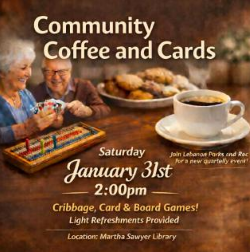
DOVER - While Michael Tatum admitted Monday he lied in his affidavit seeking to exonerate co-conspirator Aaron Wolusky in the murder of 18-year old Aaron Wilkinson, Zachary Pinette on Tuesday said inexplicable memories during the killing - possibly abetted by longtime drug use - caused him to not refute but to question his trial testimony.
In a second day of cumbersome and often contentious back and forth between Wolusky's cohorts in the murder and defense and prosecutorial teams seeking to bolster their cases, Pinette proved especially nettlesome to Senior Assistant Attorney General Peter Hinckley, often asking him to repeat questions over and over only to answer them in uncertain terms with little clarity.
The gist of both days' testimony centered on March affidavits signed by Tatum and Pinette attempting to exonerate Wolusky, who pressured both witnesses to recant trial testimony to help him reduce his life without parole sentence as the mastermind in the murder.
Wolusky concocted the scheme and reached out to them while they all were gathered in outside cages on the grounds of the men's state prison in Concord and also while playing basketball on an outside court near their cell windows.
 |
| Convicted murderer Tristan Wolusky is led from the courtroom Tuesday afternoon. |
Tatum on Monday said Wolusky offered him money and protection in prison in exchange for his help, while Pinette on Tuesday said the murder mastermind floated the idea that Pinette could see less time if he helped his friend.
The idea was that if Wolusky's sentence was reduced he could then recant trial testimony to help Pinette get a lighter sentence using the legal tenet of double jeopardy, which bars second prosecutions after either acquittal or conviction and prohibits multiple punishments for the same offense.
Wilkinson, of Madbury, died in the driveway of his home early the morning of June 21, 2014, during a botched robbery by the three aimed at stealing drugs and money. He was stabbed and struck with a machete more than 20 times, according to a coroner's report.
His body was later dumped along Long Swamp Road in Lebanon where a woman walking her dog found it later that day
The monthlong trial of Wolusky last fall stunned the northern Seacoast with its sheer brutality, and pitted accomplices Tatum and Pinette against purported ringleader Wolusky as they turned state's evidence against their former cohort in pursuit of life sentences with the possibility of parole down the road.
Pinette, 20, of Springvale, along with Tatum, 22, of Barrington, both turned state's witnesses in exchange for 30-year sentences with the possibility of parole.
During this week's two-day evidentiary hearing on setting aside Wolusky's conviction, testimony has revealed he used the double jeopardy argument with both Pinette and Tatum to assure them their plea deals could not be endangered by recanting their trial testimony.
"Your friend needed you to help him out, and the only way to help him out was if you or Tatum said you lied at trial, right?" Hinckley asked Pinette.
"Yes."
"Then Tatum agreed to say he lied at trial, but you were going to say 'I don't knows,' Hinckley added.
Pinette, like Tatum, also agreed the affidavit he signed in March wasn't accurate.
"The affidavit was twisted, but I was going to clear it up later," he said.
"The affidavit was inaccurate, right?" Hinckley asked Pinette.
"Yes."
"Not complete?"
"Yes."
Meanwhile, defense attorney Mark Sisti probed Pinette's memory, or purported lack thereof, the night of the murder.
Pinette testified that the way Wolusky took Wilkinson down as the confrontation escalated to violence "should have broken his neck."
"It surprised me his neck wasn't broken, it causes you to question everything that happened," Pinette said.
Another inconsistency for Pinette was he had thought he saw Wolusky stab Wilkinson in the chest.
"But there was no chest wound," Sisti stated.
"There's something wrong with that memory," Pinette replied.
"That gave you pause for your trial testimony, right?" Sisti asked.
"Yes."
Pinette also said he'd been on anxiety and depression drugs for a long time, including anxiety drugs for ADHD since before Wilkinson's murder.
He said they also could have caused him memory lapses.
What was supposed to be a two-day hearing ended Tuesday afternoon only halfway done. Two more witnesses, both inmates at the state prison, are still to be heard. However, with a full schedule ahead for the court, those witnesses won't be heard and the hearing won't be concluded till November.













